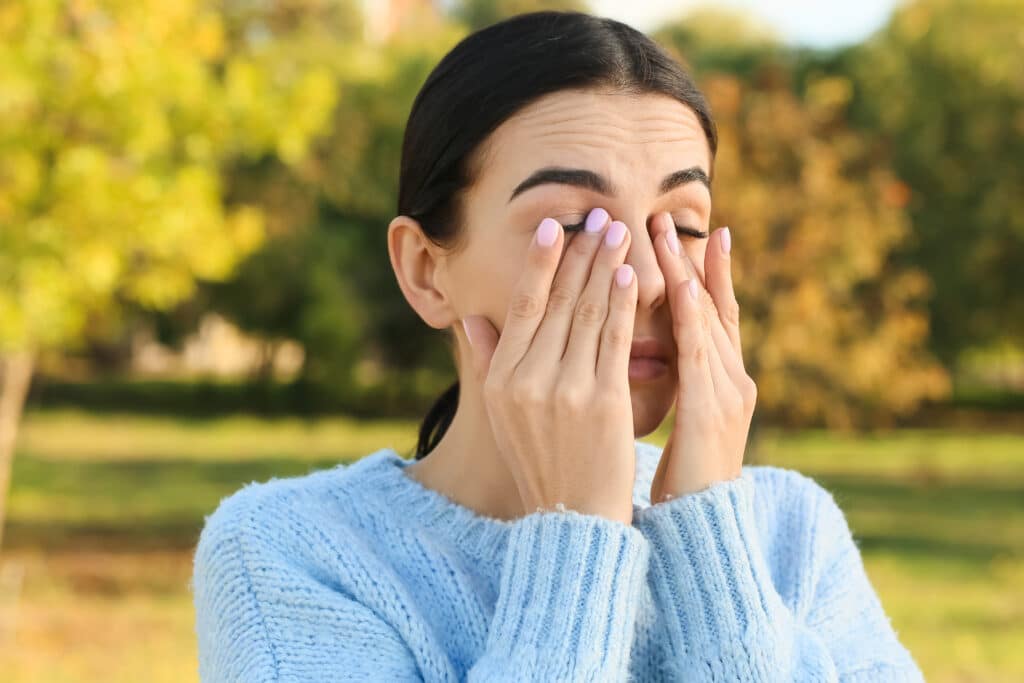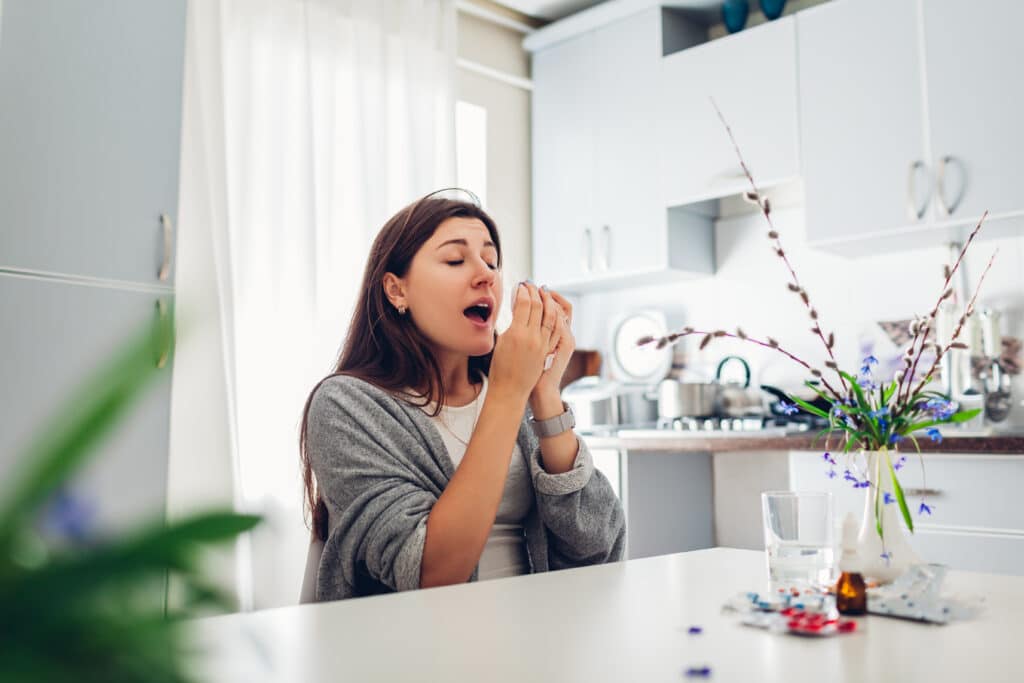

1. Apple Cider Vinegar (ACV)
While there is no hard, definitive evidence that ACV is effective in way to combat seasonal allergies naturally, it has helped me. As you may have guessed, ACV is made from fermented apples. Fermented apples are packed full of prebiotics. The prebiotics feed the organisms in our gut to help maintain a healthy microbiome. So how does this link to allergies? When your allergies kick in, your body goes into an automatic inflammatory state. Like I have mentioned in almost every blog that I have done, your gut microbiome is, in my opinion, the most important to keep healthy so that in the long run it keeps you healthy.
For me, there is one draw back to ACV. It erodes the enamel on your teeth. When I was young (and dumb) I would take a straight shot of ACV every morning. As I aged, and had babies, this started to give me really bad heartburn and nausea. Now that I am older (and wiser) I do a concoction. When I wake up in the morning, before I have my morning coffee, I will get an eight-ounce glass of water and mix one tablespoon of ACV with one tablespoon of lemon juice. I go to the dentist every six months and specifically ask how my enamel is and I have not gotten any bad news!
2. Bromelain and Vitamin C
Bromelain and Vitamin C are the most powerful natural antihistamines! Bromelain has been shown to help with respiratory distress and treating inflammation associated way to combat seasonal allergies naturally. Bromelain is found in pineapple. Unfortunately, it is found in the core and stem. The two parts that are not ate. Therefore, I take it as a supplement. FFT Supplements’ Digestive Enzymes has Bromelain and probiotics (which I will talk about in bullet three) to help me with my seasonal allergies.
Not enough can be said about Vitamin C. Not only is it an anti-inflammatory, but it is also an antioxidant. This is important because of the immune response you have when your seasonal allergies start. Having both inflammation and being in an oxidative state (imbalance of free radicals) are major factors that affect allergies. Some research has suggested that having a deficiency in Vitamin C has been linked to allergies. Since Covid, I have found myself taking FFT’s Elderberry Immunity. This has Vitamin C, zinc, magnesium and more to help me fight off the common cold and fight any possible virus that may or may not be lingering around.
3. Probiotics
Like I promised, I would get more into the probiotics. Some may question, “What do probiotics have to do with seasonal allergies?” A LOT! Let me get up on my soapbox. If you have been following our blog, you know that I am big into gut health. A strong immune system starts in your gut. If you find yourself constantly sick, check your gut health. Maintaining a healthy intestinal flora is key. Okay I will take a SMALL step down and continue with how probiotics can help with your allergies.
Probiotics help the “good bacteria” that live in your GI tract defend against infections, allergies, viruses, etc. When our allergies strike, there is more inflammation floating around in our guts, making it harder for us to get back on track. Adding in good bacteria to help combat the bad bacteria can help to neutralize the gut, bringing it back to a natural healthy state, hence, decreasing the amount of inflammation in our bodies. In a recent Bioscience, Biotechnology, and Biochemistry Journal, it was found that a probiotic called lactobacillus plantarum suppressed the allergic immune responses in test subject’s blood results when exposed to a specific pollen. It also showed that it lessened allergy symptoms like runny nose, itchy eyes, etc. This is why I have stuck with FFT’s Digestive Enzymes. However, there FFT also has a Probiotic. I just chose to stick with the Digestive Enzymes since I am taking it for the Bromelain also.
4. Local Raw Honey
This, by far, is my favorite. I eat honey and peanut butter sandwiches on Ezekiel bread every day for my morning snack. It’s delicious and so easy to get in. Eating local raw honey helps your body to build a tolerance to the local pollen that is literally killing your sinuses. In a study published in International Archives of Allergy and Immunology, it was discovered that patients who ate local honey “reported sixty percent lower total symptoms, twice as many asymptomatic days, and seventy percent fewer days with severe symptoms.” So how is this so powerful? It contains bee pollen. Bee pollen has been shown to ward off infections and allergies while boosting your immune system.
It is important to have LOCAL raw honey. When we first moved to Texas, we didn’t know anyone except for the people Trey grew up with. I found some local honey at the Keller Farmer’s Market that is held every Saturday morning. Ava and I would go quite often. Now everyone in the household eats pb and honey sandwiches for morning snack. It did get easier for me though. Our neighbor actually has a bee farm! So we get a lot of our honey from him. When we go back to South Dakota during planting season, my dad has also become a supporter of the bees by having beehives on his property. So not only does he get a certain percentage, but he also gets some of the honey that is from the surrounding community. If you think about it, it is actually pretty cool to see it go full circle around.
Seasonal allergies can be miserable and can discourage you from going outside and enjoying the beautiful weather. Although these four strategies do not fully get rid of my allergies, they do work great for me. I find it better to have a slight sniffle than to be in a complete fog all day.


